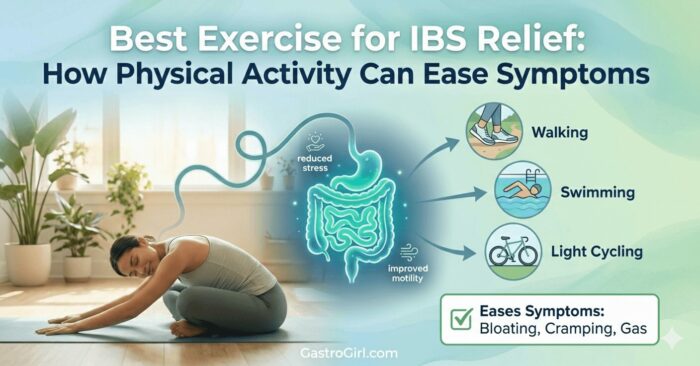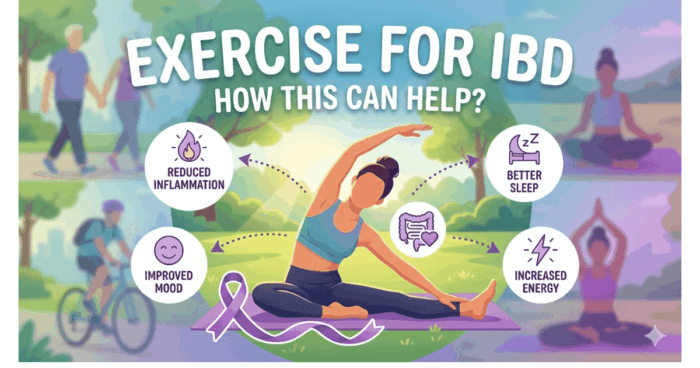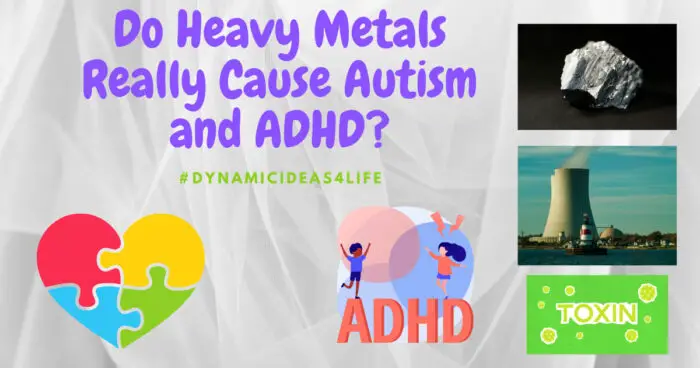
What Are the Common Signs of IBS in Children? Any concerned parent will certainly be asking themself this. If their child is suffering from recurring digestive discomfort then IBS may very well be the culprit.
To find this out a doctor should be a good judge here but of course, there are some telltale signs you can look out for as well. Knowing, they say is the very first step to solving the problem so let’s take a look at this.
What Are The Common Signs of IBS in Children
Irritable Bowel Syndrome (IBS) is a common gastrointestinal disorder that affects both adults and children.
While it is often associated with adults, it is important to understand and address this condition in children as well.
Childhood IBS can have a significant impact on a child’s quality of life, including their physical and emotional well-being.
By understanding the basics of IBS in children and recognizing the early warning signs, parents and caregivers can seek appropriate medical help and implement strategies to manage the condition effectively.
Understanding the Basics: What is IBS in Children?
IBS in children is a chronic disorder that affects the large intestine or colon. It is characterized by abdominal pain or discomfort, along with changes in bowel habits such as diarrhea, constipation, or a combination of both.
Unlike IBS in adults, which is primarily diagnosed based on symptoms, the diagnosis of IBS in children requires ruling out other potential causes of their symptoms.
One key difference between IBS in children and adults is that children often experience more frequent and severe abdominal pain. They may also have more difficulty describing their symptoms or may not be able to articulate their discomfort effectively.
Additionally, children with IBS may experience other symptoms such as bloating, gas, and nausea.
The Surprising Prevalence: How Common is IBS in Children?
IBS is a common condition in both adults and children, but its prevalence in children is often underestimated.
According to studies, IBS affects approximately 10-15% of school-aged children. This means that it is one of the most common gastrointestinal disorders in childhood.
Several factors contribute to the high prevalence of IBS in children. These include genetic predisposition, environmental factors, and alterations in gut microbiota.
Additionally, stress and anxiety can also play a role in triggering or exacerbating symptoms of IBS in children.
*Side Note: IBS is also a very common condition in Children with Autism. This is believed to be due to unusually high levels of Glutamates, a protein found in Gluten.
Early detection and intervention are crucial for managing IBS in children effectively. By recognizing the early warning signs and seeking medical help, parents and caregivers can ensure that their child receives appropriate treatment and support.
Identifying the Early Warning Signs: Bellyaches and More
Recognizing the early warning signs of IBS in children is essential for early intervention. The most common symptom of IBS in children is abdominal pain or discomfort.
This pain is often described as crampy or colicky and may be relieved by a bowel movement.
Other symptoms include changes in bowel habits, such as diarrhea, constipation, or alternating between the two.
It is important to differentiate IBS symptoms from other conditions that can cause similar symptoms, such as inflammatory bowel disease or celiac disease.
Inflammatory bowel disease typically presents with more severe symptoms, such as bloody stools and weight loss, while celiac disease is characterized by an immune reaction to gluten.
Tracking symptoms and patterns can be helpful in identifying IBS in children. Keeping a symptom diary can help parents and caregivers identify triggers and patterns that may be contributing to their child’s symptoms.
Uncovering the Lesser-Known Symptoms of IBS in Children
In addition to abdominal pain and changes in bowel habits, there are several lesser-known symptoms of IBS in children.
These can include bloating, excessive gas, nausea, and even vomiting. Children with IBS may also experience fatigue, headaches, and difficulty sleeping.
These lesser-known symptoms can have a significant impact on a child’s daily life.
For example, excessive gas and bloating can cause discomfort and embarrassment, leading to social withdrawal or avoidance of certain activities.
Nausea and vomiting can also disrupt a child’s ability to participate fully in school or extracurricular activities.
Recognizing and addressing these lesser-known symptoms is important for managing IBS in children effectively.
By addressing these symptoms, parents and caregivers can help improve their child’s overall well-being and quality of life.
The Impact on Daily Life: How IBS Affects Children’s Bathroom Habits
IBS can have a significant impact on a child’s bathroom habits. Children with IBS may experience frequent or urgent bowel movements, leading to disruptions in their daily routines.
They may also have difficulty fully emptying their bowels, leading to feelings of incomplete evacuation.
These bathroom-related symptoms can be challenging and difficult for children to manage. They may feel embarrassed or ashamed, leading to social withdrawal or avoidance of certain situations.
It is important for parents and caregivers to provide support and understanding to help their children navigate these challenges.
Strategies for managing bathroom-related symptoms include establishing a regular bathroom routine, ensuring access to clean and comfortable facilities, and providing emotional support.
It may also be helpful to work with healthcare professionals to develop a personalized treatment plan that addresses the specific needs of the child.
The Role of Diet: Unraveling the Connection Between Food and IBS in Children
Diet plays a significant role in the management of IBS in children. Certain foods can trigger or exacerbate symptoms, while others can help alleviate them.
Common trigger foods for children with IBS include fatty or fried foods, spicy foods, caffeine, carbonated beverages, and artificial sweeteners.
It is important for parents and caregivers to work with healthcare professionals to identify trigger foods and develop a balanced and individualized diet plan for their child.
This may involve keeping a food diary to track symptoms and identify patterns, as well as making gradual changes to the child’s diet.
In addition to avoiding trigger foods, it is important for children with IBS to consume a diet that is high in fiber and includes plenty of fruits, vegetables, whole grains, and lean proteins.
Adequate hydration is also important for maintaining regular bowel movements.
Seeking Medical Help: When to Consult a Doctor about IBS in Children
It is important to seek medical help if a child is experiencing symptoms of IBS. While IBS is a chronic condition that cannot be cured, there are treatments and interventions that can help manage symptoms and improve quality of life.
Parents and caregivers should consult a doctor if their child is experiencing persistent or severe abdominal pain, changes in bowel habits, or other symptoms that are affecting their daily life.
Early diagnosis and intervention can help prevent complications and ensure that the child receives appropriate treatment and support.
Medical tests and evaluations for IBS in children may include a physical examination, blood tests, stool tests, and imaging studies. These tests can help rule out other potential causes of the child’s symptoms and confirm a diagnosis of IBS.
Managing IBS in Children: Strategies for Parents and Caregivers
Managing IBS in children requires a multi-faceted approach that involves collaboration between parents, caregivers, healthcare professionals, and educators.
Here are some tips and strategies for managing IBS in children:
1. Establish a routine: Establishing a regular routine for meals, sleep, and bathroom habits can help regulate bowel movements and reduce symptoms.
2. Encourage physical activity: Regular physical activity can help promote regular bowel movements and reduce stress.
3. Provide emotional support: It is important to provide emotional support to children with IBS. This can include listening to their concerns, validating their feelings, and helping them develop coping strategies.
4. Educate teachers and school staff: It is important to educate teachers and school staff about the child’s condition so that they can provide appropriate support and accommodations.
5. Work with healthcare professionals: Collaborate with healthcare professionals to develop a personalized treatment plan that addresses the specific needs of the child.
Addressing Emotional Well-being: The Psychological Impact of IBS on Children
IBS can have a significant impact on a child’s emotional well-being. Children with IBS may experience anxiety, depression, and low self-esteem.
They may also have difficulty concentrating or participating fully in school and social activities.
It is important to address the psychological impact of IBS on children and seek support when needed.
This can include therapy, counseling, or support groups.
It is also important for parents and caregivers to provide a supportive and understanding environment for their children.
Looking Towards the Future: Research and Treatment Advances for Childhood IBS
Research in the field of childhood IBS is ongoing, and there are promising treatment options and interventions being explored. These include dietary interventions, probiotics, and psychological therapies.
It is important to continue advocating for research and raising awareness about childhood IBS.
By doing so, we can improve the understanding and management of this condition, ultimately improving the quality of life for children with IBS.
In Conclusion
IBS is a common gastrointestinal disorder that affects both adults and children. Understanding and addressing IBS in children is crucial for their physical and emotional well-being.
By recognizing the early warning signs, seeking medical help, implementing strategies for managing symptoms, and addressing emotional well-being, parents and caregivers can provide the support and care that children with IBS need.
It is important to raise awareness about childhood IBS and continue advocating for research and advancements in the field.
With early detection, intervention, and ongoing support, children with IBS can lead healthy and fulfilling lives.




Anxiety and Depression BiOptimizers blood pressure supplements blood sugar control blood sugar support supplements cognitive function digestive enzymes Digestive Enzymes Supplement Digestive Health digital products Dr Sam Robbins Exercise Gut Health Gut Health While Travelling Health Tips for Travelling Healthy Living heart health HFL How To Lower Cholesterol insulin resistance joint health supplement keto dieting Keto Diet Weight Loss leaky gut supplements list Magnesium deficiency Matt Gallant mental health multivitamins Nootopia Nootropics nutrient supplements Probiotics Probiotic Supplements reverse type 2 diabetes stress and anxiety stress relief vitabalance vitapost Wade Lightheart weight loss articles weight loss diet plans weight loss product reviews weight loss supplements weight loss tea





